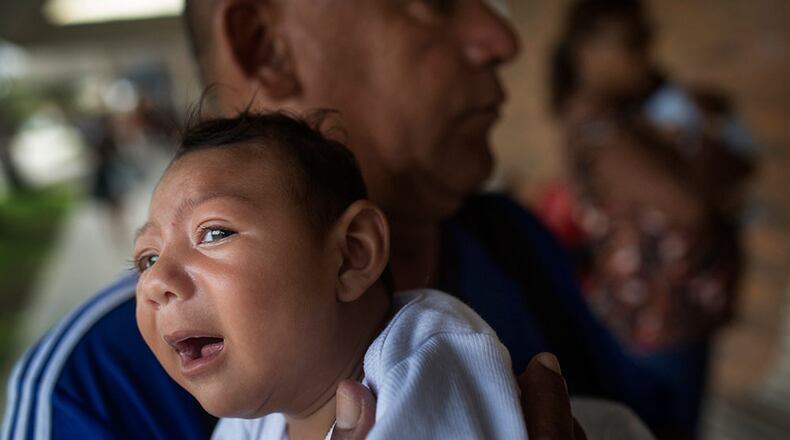With fresh cases of Zika being reported in Florida and now in Texas as well, with almost 2,000 cases reported nationwide by the CDC, U.S. Sen. Marco Rubio was asked over the weekend whether pregnant women infected with the virus should be allowed to terminate their pregnancies or whether they should be forced by law to carry it to term despite the likelihood of severe or fatal abnormalities.
They should be forced by law to carry it to term, he said.
"I understand a lot of people disagree with my view," Rubio said, "but I believe that all human life is worthy of protection of our laws. And when you present it in the context of Zika or any prenatal condition, it's a difficult question and a hard one. But if I'm going to err, I'm going to err on the side of life."
In one sense, I respect Rubio's point of view. It's honestly held and a product of his faith, and he isn't backing away from it even in a year when he faces a tough re-election fight. There's no reason to question what decision he and his family would personally make for themselves if they were confronted by the tragic options that Zika can force upon a couple or pregnant woman. Again, I honor and respect that.
But let's be clear: Rubio also wants to use the intrusive, overriding power of government to impose his own belief system on every other person in the country. If given the chance -- and he and others very much wants the chance -- they would strip that choice from individuals and hand it to government.
That is also the position of the Republican Party, as expressed in its 2016 platform, which states:
"We assert the sanctity of human life and affirm that the unborn child has a fundamental right to life which cannot be infringed. We support a human life amendment to the Constitution and legislation to make clear that the Fourteenth Amendment’s protections apply to children before birth.... We support the appointment of judges who respect traditional family values and the sanctity of innocent human life."
That "fundamental right to life" allows no exception for pregnancies created through acts of rape, incest or child abuse. A 14-year-old child impregnated by an uncle, for example, would have no legal option but to endure that full pregnancy. And it certainly does not allow women or couples to make their own decisions when confronted with a pregnancy that is almost certainly compromised by Zika.
As even Rubio acknowledges, these are hard questions. They are also inherently, inescapably personal questions of the sort that ought to defy a one-size-fits-all answer dictated by government. They are, to use an increasingly archaic term, private. And with one Supreme Court seat already sitting vacant, and with three other justices aged 77 or older, that privacy is very much at risk.
About the Author
The Latest
Featured



